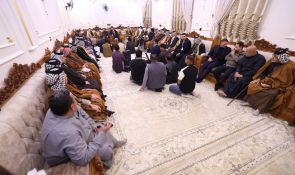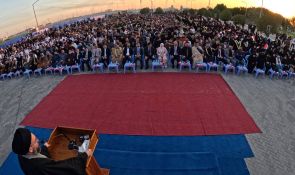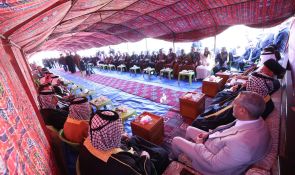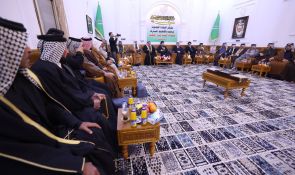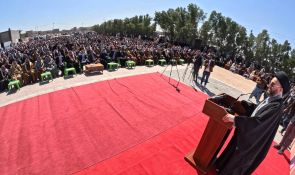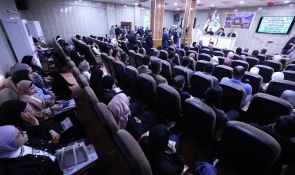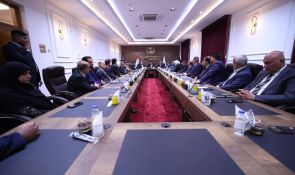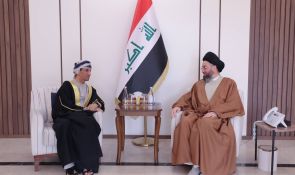Sayyid Al-Hakeem stresses provincial councils’ responsibility to change perceptions about them, advocate through services, conflict avoidance
Sayyid Ammar Al-Hakeem, Head of Al-Hikma National Movement, met with Mr. Adnan Feihan, the governor, and the members of the provincial council, as well as members of the parliament from the province, and the heads of service departments and security leaders, on 2/5/2024, and highlighted the cultural and historical significance of Babylon province and its demographic weight and role in Iraq's history.
His Eminence emphasized the need for containment and communication with all parties and prioritized services to sustain popular satisfaction, stating that provincial councils represent the first line of defense to protect the political system.
H.E. also called for compensating provinces that have allocated their resources to sustain the war against ISIS, pointing out that provincial councils have borne significant burdens due to their direct interaction with citizens and limited resources, which has given the impression that they are an extra administrative layer. H.E. stressed their importance and called for the integration of roles, warning against the absence of provincial councils, as it contributes to the proliferation of corruption and the absence of fair wealth distribution among regions. H.E. emphasized the responsibility of provincial councils to change perceptions about them, advocate for them through services, and avoid conflict.
H.E. emphasized the need to restore the powers of provincial councils, calling for a unified vision from all local governments to regain these powers. H.E. stressed the importance of prioritizing decentralization over centralization, as Iraq's strength lies in all its parts, and granting powers to regions while withholding them from provinces constitutes discrimination against Iraqis.
H.E. underscored the equation of proper planning, sound execution, and specified timelines. H.E. also called for providing a secure investment environment, supporting and protecting investors and their rights, stating that investment creates job opportunities, stimulates the economy, and achieves strategic security. H.E. emphasized the need to define an economic identity for Babil that suits its agricultural, industrial, historical, and cultural significance.
H.E. affirmed that Babil is a transit province for the provinces of the Middle and Southern Euphrates, as well as Baghdad, increasing pressure on it. It requires exceptional budgets commensurate with its situation, calling for the return of displaced persons, addressing water shortages, and using modern irrigation methods, as well as lining rivers and reservoirs. He also called for advancing stalled projects, especially infrastructure and sanitation projects, and distributing land plots because construction stimulates the economy, provides job opportunities, and strengthens people's attachment to their homeland. H.E. emphasized a different approach to dealing with drugs, as users are patients in need of psychological and social treatment, unlike drug traffickers and peddlers.



